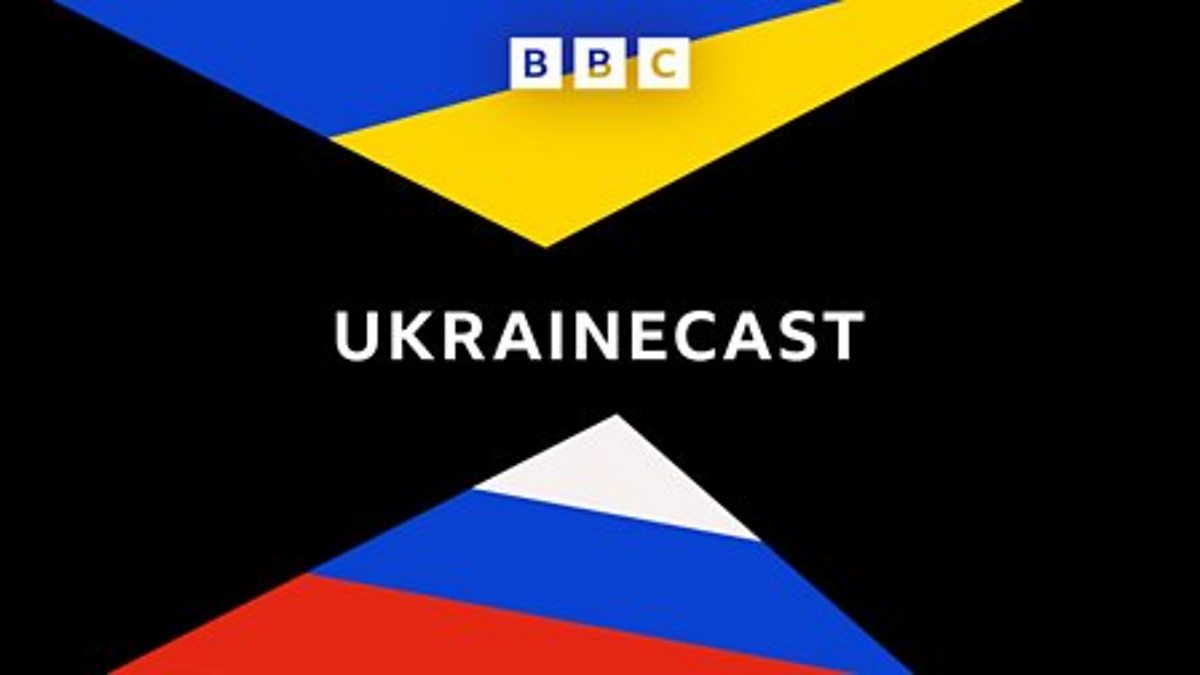Life after loss, and views on Trump. An old friend of the podcast, Viktoria Kovalenko, joins us in the studio. Viktoria has experienced the horrors of war first hand. Her husband and elder daughter were killed in front of her when they tried to escape the city of Chernihiv in 2022. Three years on she’s forging a new life with her four-year-old in the UK. She tells us how she’s adapting to life here, what she thinks about Donald Trump and how she remembers the family members she’s lost. Plus - the BBC’s security correspondent, Frank Gardner, considers the international response to deadly missile strikes on Sumy over the weekend and how Steve Witkoff’s talks with Vladimir Putin went in Russia. Today’s episode is presented by Victoria Derbyshire and Vitaly Shevchenko. The producers were Laurie Kalus and Ben Carter. The technical producer was Gareth Jones. The editor was Max Deveson. The senior news editor is Sam Bonham. Email Ukrainecast@bbc.co.uk with your questions and comments. You can also send us a message or voice note via WhatsApp, Signal or Telegram to +44 330 1239480 You can join the Ukrainecast discussion on Newscast’s Discord server here: tinyurl.com/ukrainecastdiscord Available now 31 minutes See all episodes from Ukrainecast Timings (where shown) are from the start of the programme in hours and minutes Your Questions Answered: Witkoff meets Putin, Chinese soldiers and Russia’s economy
Viktoria's story: Three years on
TruthLens AI Suggested Headline:
"Viktoria Kovalenko Reflects on Life After Loss and Adapting to Life in the UK"
TruthLens AI Summary
Viktoria Kovalenko, an old friend of the podcast, shares her harrowing experiences of loss and resilience following the tragic events of the war in Ukraine. In 2022, she witnessed the brutal killings of her husband and elder daughter while they attempted to escape from Chernihiv, a city ravaged by conflict. Now, three years later, Viktoria is striving to build a new life in the United Kingdom with her four-year-old daughter. She discusses the challenges of adapting to a new environment while grappling with the profound grief of losing her family. Viktoria reflects on her memories of her loved ones, emphasizing how their absence continues to shape her daily life and her hopes for the future. Her story is a poignant reminder of the personal toll of war and the enduring strength found in the face of unimaginable loss.
In addition to Viktoria's narrative, the episode features insights from the BBC's security correspondent, Frank Gardner, who examines the international response to recent missile strikes on Sumy. Gardner provides context on the escalating violence in Ukraine and discusses the implications of ongoing diplomatic engagements, including recent talks between Steve Witkoff and Vladimir Putin. The episode, hosted by Victoria Derbyshire and Vitaly Shevchenko, underscores the complexities of the current geopolitical landscape while highlighting personal stories like Viktoria's, which serve to humanize the broader conflict. Listeners are encouraged to engage with the podcast through various platforms, reflecting the growing interest in the unfolding situation in Ukraine and the human experiences intertwined with it.
TruthLens AI Analysis
The story of Viktoria Kovalenko is a deeply personal and tragic account of war’s human toll, framed within broader geopolitical discussions. It blends emotional narrative with political analysis, a common tactic in journalism to engage audiences while contextualizing individual experiences within larger events. The inclusion of commentary on Trump, Putin, and international responses suggests an effort to tie personal suffering to global power dynamics.
Purpose and Narrative
The segment likely aims to humanize the ongoing conflict in Ukraine, keeping Western audiences engaged with the war’s lasting impacts. By centering Viktoria’s story, the BBC underscores civilian trauma while weaving in critiques of international actors like Trump and Putin. This serves dual purposes: sustaining empathy for Ukraine and subtly critiquing policies or figures perceived as undermining support for Kyiv.
Audience and Perception
The target audience is Western liberals and centrists who align with mainstream media’s pro-Ukraine stance. The emotional weight of Viktoria’s loss fosters solidarity, while mentions of Trump and Putin reinforce a narrative of authoritarian complicity or indifference. The security correspondent’s analysis of missile strikes further anchors the story in current events, appealing to listeners seeking both human interest and geopolitical insights.
Manipulation and Bias
The segment employs emotional storytelling to steer audience sentiment, a legitimate journalistic tool but one that risks oversimplifying complex issues. The juxtaposition of Viktoria’s grief with Trump’s politics, for instance, implicitly links his potential policies to continued suffering—a persuasive framing that may lack nuance. The absence of pro-Russian perspectives or critical scrutiny of Ukrainian governance hints at editorial bias, common in Western war reporting.
Credibility and Gaps
While Viktoria’s account is credible as a firsthand testimony, the broader geopolitical analysis leans toward established Western narratives. The lack of divergent viewpoints (e.g., voices questioning NATO’s role or advocating diplomacy) narrows the discourse. The segment’s reliance on BBC correspondents and curated guest interviews suggests controlled messaging rather than exploratory journalism.
Economic and Political Ripples
The discussion of Putin-Witkoff talks and missile strikes might subtly influence perceptions of Russia’s isolation or resilience, indirectly affecting markets tied to defense or energy sectors. However, the human-interest focus limits direct economic impact. Politically, it reinforces the urgency of continued Western aid to Ukraine, aligning with current U.S. and EU policy debates.
AI and Production
There’s no clear evidence of AI-generated content, though the scripted flow and polished narrative suggest structured editorial input. If AI tools were used, they likely aided research or transcription rather than shaping core messaging. The tone aligns with BBC’s traditional ethos, making overt manipulation unlikely.
Trustworthiness
The segment is broadly trustworthy in its factual reporting of Viktoria’s story and verified events like the Sumy strikes. However, its selective framing and omission of alternative perspectives reduce its objectivity. It earns moderate credibility for emotional authenticity but loses points for balanced analysis.
